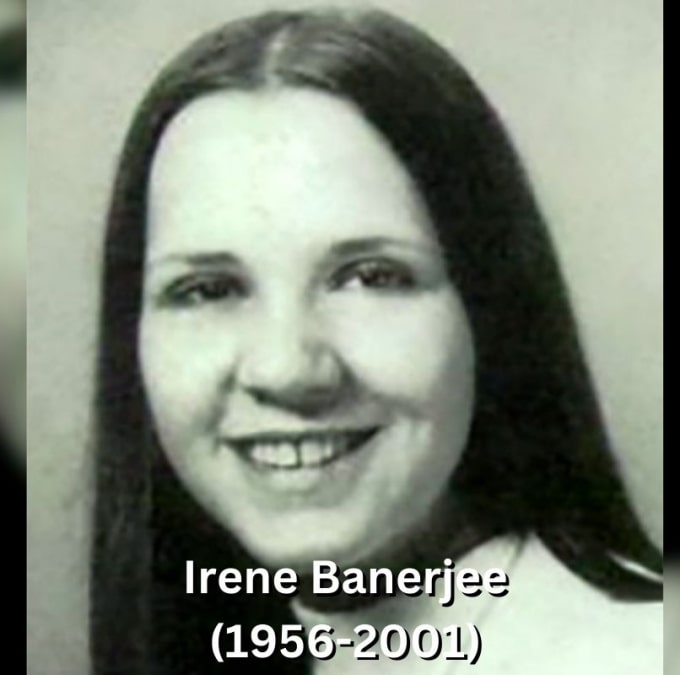The name Rodney James Alcala, better known as the "Dating Game Killer," sends shivers down the spines of those acquainted with his horrifying crimes. His tale is a chilling blend of deceit, manipulation, and extreme violence, leaving a haunting legacy in the world of criminal history. This article offers a comprehensive exploration of Alcala's life, crimes, and impact, tracking his transformation from an ostensibly ordinary person to one of America's most infamous serial killers.
Quick Facts about Rodney Alcala
| Key Information | Rodney Alcala's Details |
|---|---|
| Full Name | Rodney James Alcala |
| Known As | The Dating Game Killer |
| Occupations | Serial Killer, Photographer |
| Date of Birth | August 23, 1943 |
| Place of Birth | San Antonio, Texas |
| Nationality | American |
| Height | 6 feet 2 inches (188 cm) |
| Weight | 180 lbs (82 kg) |
| Parents | Raul Alcala Buquor, Anna Maria Gutierrez |
| Date of Death | July 24, 2021 |
| Place of Death | Corcoran, California |
Alcala's Early Years
Rodney Alcala's early life was punctuated by significant events and experiences that shaped his future path. Born in San Antonio, Texas, Alcala's family dynamics and formative education played pivotal roles in his development.
Family Life
Rodney James Alcala was born to Raul Alcala Buquor and Anna Maria Gutierrez on August 23, 1943. The family moved to Mexico when Rodney was young, but returned to the United States after his father abandoned them.
Signs of Trouble
As Alcala grew, his behavior became increasingly erratic, revealing signs of antisocial personality disorder. Despite these troubling indicators, Alcala's intelligence allowed him to enroll at UCLA. However, his academic pursuits were overshadowed by his dark tendencies.
Alcala's Criminal Beginnings
Rodney Alcala's criminal career began long before he earned the chilling title of the "Dating Game Killer." His initial crimes laid the groundwork for his later, more horrific acts.
First Known Assault
In 1968, Alcala lured eight-year-old Tali Shapiro into his apartment in Hollywood, California. He evaded capture and fled to New York after a passerby alerted the police, who arrived just in time to save Tali's life.
New York University
After fleeing California, Alcala enrolled at New York University under the alias "John Berger". He studied film while continuing his criminal activities, including the brutal murder of flight attendant Cornelia Crilley in 1971.
The Dating Game Appearance
One of the most unsettling aspects of Rodney Alcala's life is his 1978 appearance on the popular TV show "The Dating Game," which occurred during his murder spree.
The Show's Concept
"The Dating Game," presented by Jim Lange, featured a bachelor or bachelorette choosing a date from three contestants. Alcala won a date with bachelorette Cheryl Bradshaw, but she found him too creepy and declined the date, likely saving her life.
Public Deception
Alcala's charm and charisma on the show masked his true nature. His ability to deceive those around him would later become a key facet of his criminal profile.
Alcala's Murderous Rampage
Rodney Alcala's murder spree spanned several years and states, leaving a trail of victims and unanswered questions. His method of operation was particularly brutal, involving torture and sexual assault before killing his victims.
Murders in California
Alcala's most notorious murders occurred in California between 1977 and 1979. His victims included Jill Barcomb, Georgia Wixted, Charlotte Lamb, and Jill Parenteau. Each crime was marked by extreme violence.
Murders in New York
In addition to his California crimes, Alcala committed murders in New York. The most notable victims were Cornelia Crilley and Ellen Jane Hover.
Arrest and Trials
Rodney Alcala's capture and subsequent trials were fraught with dramatic twists and turns. His ability to manipulate the legal system prolonged his freedom.
Initial Arrest and Conviction
Alcala was first arrested in 1979 for the murder of 12-year-old Robin Samsoe. However, his conviction was overturned twice due to procedural errors, leading to multiple retrials.
DNA Evidence
In the early 2000s, advancements in DNA technology allowed investigators to link Alcala to several other murders. This evidence was crucial in his 2010 trial, where he was again sentenced to death.
Financial Aspects of Alcala's Life
Examining Rodney Alcala's financial life provides intriguing insights, although his criminal activities overshadowed any legitimate financial success he might have had.
Net Worth and Financial Background
Rodney Alcala's net worth is not well-documented, primarily because his life was dominated by his criminal activities. Any potential assets he might have had at the time of his death in 2021 were likely negligible.
Legal Costs and Incarceration
The costs associated with Alcala's multiple trials and incarcerations were substantial. The state of California invested millions in his legal proceedings and his lengthy incarceration.
Alcala's Legacy and Impact
Rodney Alcala's legacy is a dark one, marked by terror and tragedy. His crimes left a lasting impact on the families of his victims and the broader community. His case also had significant implications for the criminal justice system.
Media Coverage
Alcala's story has been widely covered in the media, with numerous documentaries, books, and articles exploring his life and crimes. His appearance on "The Dating Game" remains a chilling reminder of his ability to deceive and manipulate.
Legal Reforms
The procedural errors that led to Alcala's retrials highlighted flaws in the criminal justice system. His case prompted discussions about the need for reforms to ensure that justice is served swiftly and accurately.
Victim Advocacy
The families of Alcala's victims have become advocates for stronger laws and better support systems for victims of violent crimes. Their efforts have helped raise awareness and drive change in the criminal justice system.
Frequently Asked Questions
What was Rodney Alcala's modus operandi?
Rodney Alcala's method of operation involved luring his victims, often posing as a photographer, and subjecting them to extreme violence, including torture and sexual assault before killing them.
How many victims did Rodney Alcala have?
Rodney Alcala was convicted of five murders in California but was linked to at least eight murders. Authorities suspect he may have had as many as 130 victims.
Why was Rodney Alcala called the "Dating Game Killer"?
Rodney Alcala earned the nickname "Dating Game Killer" because he appeared on the TV show "The Dating Game" in 1978 during his murder spree. His appearance on the show while actively committing murders added a bizarre and chilling element to his story.
What happened to Rodney Alcala?
Rodney Alcala was sentenced to death for his crimes and spent the remainder of his life in prison. He died of natural causes on July 24, 2021, at California State Prison, Corcoran.
How did Rodney Alcala evade capture for so long?
Rodney Alcala's ability to evade capture was partly due to his use of aliases, his charm and charisma, and the limitations of forensic technology at the time. His travels between states also complicated efforts to track him.
Conclusion
Rodney Alcala's life serves as a harrowing reminder of human depravity and the importance of vigilance in the face of evil. His ability to deceive and manipulate those around him allowed him to commit horrific crimes over several years. While his capture and conviction brought some measure of justice, the true extent of his crimes may never be fully known. The legacy of the "Dating Game Killer" continues to haunt the families of his victims and serves as a stark warning of the dangers that can lurk behind a charming facade.













